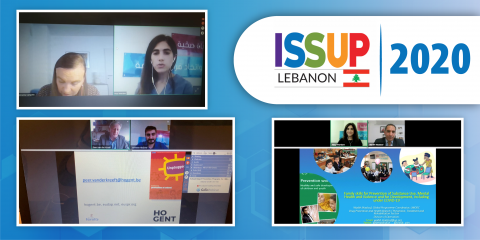ISSUP Lebanon Updates - 2020
On September 2020, ISSUP Lebanon was successfully launched in a virtual event, with over 380 local and international attendees. As part of Lebanon’s national chapter launch, ISSUP Lebanon hosted guest speaker Giovanna Campello, Chief UNODC Prevention, Treatment & Rehabilitation Section (PTRS). Campello presented evidence-based prevention strategies of drug use according to UNODC-WHO Second Updated Edition of the International Standards. The participants learned about which interventions have been found to be effective in preventing drug use and other risky behaviours according to scientific evidence and as summarised in the Standards.
Moreover, ISSUP Lebanon hosted its second webinar on October 14 entitled, ‘School Based Prevention Programs for Adolescents: Unplugged as an Example’, with Peer van der Kreeft, Lecturer in prevention at University College Ghent, Department of Social Work, Lead of the EU-Dap (Drug Abuse Prevention) Faculty Project for TOT and Adaptation of Unplugged and President of the EUSPR European Society for Prevention Research. The webinar had 585 attendees and provided insights on what works and what does not work in school-based prevention programs for adolescents such as Unplugged.
On November 11, ISSUP Lebanon hosted its last webinar of the year with guest speaker Wadih Maalouf, Programme Officer at UNODC. The webinar topic, ‘Family Skills for Prevention of Substance Use, Mental Health and Violence and for Development, including under COVID19’, had over 400 attendees. The presentation shed light on understanding the value of evidence-based family skills for substance use prevention and other negative social outcomes such as violence and poor mental health especially in the context of COVID19. The attendees also learned from experiences generated from low-and-middle-income countries applying such programmes for families living in different challenging circumstances. Finally, Maalouf presented an overview of the available free tools for dissemination to support families in such different context including COVID19.

